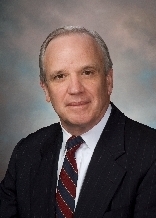July 22, 2001
Politics is sorely tested by moral issues. All of our social institutions are.
The moral issue politicians are dealing with at the moment is whether human embryonic stem cells should be used in research. Conservatives appear to be more torn by the issue than liberals. How this debate goes may have a profound effect on the conservative movement—and on politics in general.
As is so often the case, the debate involves deep, fundamental differences that need to be examined to understand what is happening at the surface. Most of us appreciate that tinkering with the basic ingredients of human life is not to be undertaken thoughtlessly, but we aren’t entirely sure what ethical guidelines should apply.
The stem cell debate is perhaps more troubling than the abortion debate for conservatives, although both involve fundamental questions concerning human life. What is so sharply focused in the stem cell debate is the issue of when life begins. Some abortion opponents don’t believe that life begins at conception. Even among abortion opponents who do believe that conception is life’s beginning, there are some who support stem cell research on the grounds that the embryos will be destroyed in any event.
It is this last justification that exposes the deepest fault line among conservatives and arguably among Americans. The conservative movement, at least sine the 1970s, has gathered traditional conservatives, libertarians, opponents of Communism and free traders in a tenuous alliance. The end of the Cold War greatly weakened one of the organizing themes of conservatives. This caused heightened tension between traditional conservatives and libertarians.
What traditional conservatives have in common is a belief in a transcendent moral order. They believe that a universal moral authority governs human conduct at some level. This belief animated the Founders and was given explicit expression in the Declaration of Independence.
Libertarians and most liberals either don’t believe in moral absolutes or don’t order their thinking as if there were. In general, they tend to be utilitarians in the tradition of English philosopher Jeremy Bentham. They believe that whatever serves the interests of the most people is good and ethical.
Most people avoid the question and would be hard-pressed to say precisely what set of ethical principles, if any, guide their decisions on stem cell research. These people would resist being put in one category or the other.
Scientists may or may not be utilitarians, but they tend to believe that the only limits of scientific research should be science itself. The combination of scientists and utilitarians is a powerful force. The split among conservatives over stem cell research and a large class of people who wish the issue would simply go away probably assures eventual governmental approval of that research.
Before that happens, the pro-life community must make its opposition to the deliberate destruction of embryos as clear, forceful and widely known as possible. Even if they lose the current debate, they need to frame the moral concern in a way that will have an effect on the next debate over human life.
There will surely be another debate over when society will justify the destruction of life. Several have taken center stage in recent years. In addition to abortion, we have anguished over euthanasia and the death penalty.
Because these issues go squarely to what and who we are as human beings, Americans cannot afford to treat them superficially and dismissively. Next week, this column will take a deeper look at these ethical issues.
 Mr. McSweeney practices law in the City of Richmond where he was born in 1943. In January 2009, he convened a meeting of more than 200 Virginians, which led to the formation of Restore the Founders’ Vision, a non-profit civic education initiative. He has four adult children. He resides with his wife, Wendy, in Powhatan County, Virginia.
Mr. McSweeney practices law in the City of Richmond where he was born in 1943. In January 2009, he convened a meeting of more than 200 Virginians, which led to the formation of Restore the Founders’ Vision, a non-profit civic education initiative. He has four adult children. He resides with his wife, Wendy, in Powhatan County, Virginia.
